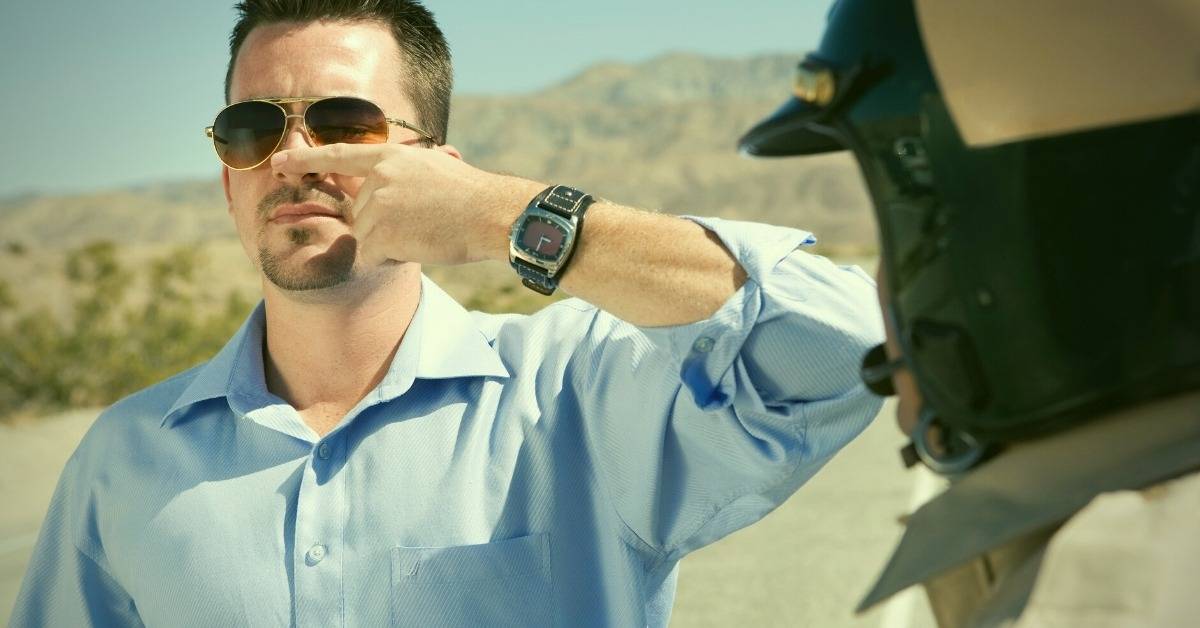Under Texas Transportation Code § 724.011, any person arrested for an offense related to operating a motor vehicle in a public place while intoxicated is deemed to have consented to submit to the taking of one or more specimens of his or her breath or blood for chemical analysis. This concept in which a person agrees to be tested by becoming a licensed driver is known as implied consent, and it is used by Texas and every other state across the country.
Despite the implied consent, drivers still have the right to refuse to submit to any chemical testing although doing so will result in automatic revocation of driving privileges. For drivers who do agree to submit to chemical testing, anybody having an alcohol concentration of 0.08 or more will be charged with driving while intoxicated (DWI). However, there may be a good reason to question the accuracy of any of these test results.
DWI Testing Defense Lawyer in Denton, Frisco, Lewisville, Flower Mound, TX
If you have been charged with DWI in Denton County, you should not waste any time in contacting an experienced criminal defense attorney. Whether you refused to submit to chemical testing or failed a breath or blood test, you only have 15 days to request an administrative license suspension hearing to get your driver’s license back.
Law Offices of Richard C. McConathy investigates DWI arrests and then works to defend clients all over the Lewisville area, including many surrounding communities like Grapevine, Denton, Highland Village, and Westlake, and surrounding counties, including Wise County, Parker County, and Cooke County. Call (940) 222-8004 today to let our firm review your case during a free, confidential consultation.
Types of DWI Testing in Denton County
When a person has been pulled over and is suspected of drunk driving, a police officer will usually attempt to get the alleged offender to agree to submit to any combination of the following tests:
Standardized Field Sobriety Test
There are a variety of tests that law enforcement may ask an alleged offender to perform before seeking any type of specimen for chemical analysis. Reciting the alphabet backward and being asked to touch the tip of an index finger to the tip of the nose is a couple of examples of non-standardized field sobriety tests that officers may use as part of their investigation but are generally not utilized as evidence of intoxication.
Three examples of standardized field sobriety tests approved by the National Highway Traffic Safety Administration include:
- Horizontal Gaze Nystagmus — Nystagmus is a term describing rapid, uncontrollable movements of the eyes. During this test, a police officer will place an object such as a pen roughly 12 to 15 inches from the alleged offender’s face and ask him or her to follow the object from side to side with his or her eyes. The test needs to be administered in such a way that the eyes of the alleged offender can clearly be seen. Any signs of nystagmus may be signs of intoxication.
- Walk and Turn — During this test, the alleged offender will be directed to take nine steps, heel-to-toe, along a real or imaginary straight line, turn on one foot, and take nine heel-to-toe return steps along the same real or imaginary straight line. During the test, law enforcement will for such signs of intoxication as failure to maintain balance, beginning before the instructions are finished, stopping to regain balance, failure to touch heel-to-toe, stepping off the line, using arms for balance, making improper turns, or taking an incorrect number of steps.
- One-leg Stand — The alleged offender will be instructed to stand still in a position with one foot approximately six inches off the ground and count aloud by thousands while looking at his or her foot until he or she is told to put his or her foot down. During this test, a police officer will look to see if the alleged offender sways while balancing, puts his or her foot down, or hops or has to use his or her arms to maintain balance.
Multiple studies have shown that many people who have consumed no alcohol may struggle to satisfactorily complete these types of tests.
Breath Test
Under Texas Penal Code § 49.01, an alleged offender’s alcohol concentration is the number of grams of alcohol per 210 liters of breath. This is one of the most commonly utilized chemical tests in the state of Texas, and breath tests may be administered using either portable breath test (PBT) devices at the location of the traffic stop or machines (most often an Intoxilyzer 5000) at a local police station.
It is important to remember that PBT test results are generally inadmissible in most Texas courts and an alleged offender is not required to submit to these types of tests. The Intoxilyzer 5000 computes the light absorption from an alleged offender’s breath sample into a blood alcohol concentration (BAC) value.
The Intoxilyzer 5000 works by exposing air in a sample chamber to infrared light, comparing it to the amount of light absorbed from when the alleged offender blows into the device and printing the difference between the two as a test result. Any number of mistakes made in maintaining or using the Intoxilyzer 5000 can produce an incorrect BAC reading.
Blood Test
Alcohol concentration is the number of grams of alcohol per 100 milliliters of blood, according to Texas Penal Code § 49.01. Blood tests are especially common during “no refusal” weekends when alleged offenders do not agree to submit to field sobriety tests or provide breath test samples.
After a sample is collected in a blood draw, it is analyzed by qualified technicians at a private or state crime laboratory. There can be numerous issues involving constitutional rights, the handling of samples, and other factors that may make these types of test results inadmissible in court.
Urine Test
Texas Penal Code § 49.01 says the number of grams of alcohol per 67 milliliters of urine is used to determine an alleged offender’s alcohol concentration. In these types of tests, an alleged offender will urinate into a specimen cup and the sample is analyzed by qualified technicians at a private or state crime laboratory.
Urine tests are very rarely used to test for alcohol in DWI cases, but they may be utilized to test for drugs or in instances in which an alleged offender is physically unable to submit to a breath or blood test. However, urine tests are notoriously unreliable because of various flaws, including samples being too diluted to interpret or legal prescription or over-the-counter drugs resulting in false positives.

Types of Errors in Texas DWI Testing
A person who has been charged with DWI in Denton County should not assume that failing any type of test automatically means that he or she will be convicted. Rather, a knowledgeable criminal defense lawyer can investigate your arrest and how these tests were handled to determine if any one of a number of mistakes can lead to these test results being suppressed and, thus, the charges being dropped.
Some common mistakes in these types of cases include, but are not limited to:
- Failure to Clean / Calibrate Device — Breathalyzer devices such as the Intoxilyzer 5000 need to be calibrated on a regular basis in order to ensure that they are producing accurate results. These devices are extremely sensitive, and any failure to clean or properly calibrate them can result in tests performed on the devices being thrown out.
- Mishandled Samples — Blood or urine samples need to be properly sealed and stored before they are tested. Any mistakes made in regards to the vials or cups these specimens are stored in, the temperatures they are stored at, or possible contamination of the samples will lead to invalidating the tests.
- Defective Equipment — If a PBT, Intoxilyzer 5000, or other alcohol concentration testing device fails, it may be possible for several samples before the problem was identified to be declared inaccurate.
- Device Operator Not Certified — The individuals operating breath test devices or analyzing blood or urine samples must be properly licensed, otherwise, the results may not be admitted to court.
- Improperly Administered DWI Tests — Every testing process needs to follow specific rules associated with certain procedures, and any deviation from these guidelines can nullify the results.
Denton County DWI Test Resources
Texas Department of Public Safety (DPS) Breath Alcohol Testing — On this website, you can find information about the Texas Breath Alcohol Testing Regulations contained in Texas Administrative Code Title 37 Chapter 19. This includes answers to frequently asked questions as well as reference material for breath alcohol ignition interlock devices (BAIIDs) and instrument certification.
820 North Loop 288
Denton, TX 76209
(940)484-6661
400 Bolivar
Suite 101
Sanger, TX 76266
(940) 458-5164
Texas Department of Transportation — Various information is available on this website, including specific pages dedicated to DWI and designated driver programs for football games and holidays. There are also links to Faces of Drunk Driving as well as additional information about road safety and laws.
2624 West Prairie Street
Denton, TX 76201
(940) 387-1324
Find A Denton County Defense Attorney for DWI Testing Results | Law Office of Richard C. McConathy
Were you arrested and charged with DWI in Denton County after failing one or more tests given by law enforcement? You will want to seek the help of skilled a criminal defense attorney, and Richard C. McConathy and Brian A. Bolton diligently work to achieve the most favorable outcomes to these cases for clients all over North Texas.
Law Offices of Richard C. McConathy represents people throughout in Denton, Frisco, Lewisville, Flower Mound, and surrounding areas of Denton County, Texas. Our firm can review your case when you call (940) 222-8004 for a free consultation.


